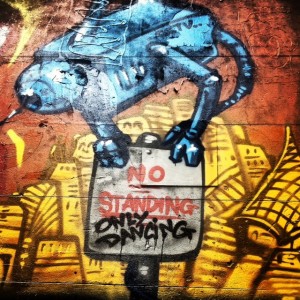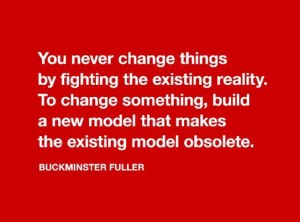 Having worked in recruitment and as a career counsellor over the past 14 years, I have helped hundreds of people find the right job for them.
Having worked in recruitment and as a career counsellor over the past 14 years, I have helped hundreds of people find the right job for them.
Knowing how to change careers or find a better job can be challenging.
You’ll often feel lost as there is no one person who has all the answers.
There are also often a few roads you can take to get you to where you want to go.
That’s the bad news.
The good news is that there is a defined process you can follow to help you successfully find a better job.
It may not be easy at times.
And there will be a lot of challenges along your path of personal transformation. However every client whom I have ever worked with, has always made some kind of positive change simply by contemplating some of the information contained in the key steps below.
As we keep saying on this blog, it’s important to know that you are not alone.
The search for meaning and purpose is what makes us human. Looking at ways to transform your life can be incredibly rewarding, especially if you find yourself feeling lost, bored, stuck or unhappy at work.
There are also trained professionals available to help you, who can make your job change process much easier for you.
Step 1. Get to know you.
Take time to explore very deeply what you enjoy doing and what gives you a sense of energy. Focus on things that feel most like you, that you are interested in and would like to learn more about.
People who report having satisfying careers, say this is like a true expression of who they are – all the things they stand for, the parts of them they enjoy expressing and what gives them a sense of personal satisfaction. It’s also about helping others and improving the overall quality of life.
So spend some time to consider your strengths and core values. Ask what is important to you and what things in life give you a sense of meaning when you do them. Pay attention to what you might dream about as well. Almost everything is a clue.
Spend as much time as to can at this stage. Really focus on what you are experiencing to give clues about what will bring you happiness over the longer term. Remember that it is possible to wake up in the morning with a genuine sense of optimism about the day ahead.
This stage is potentially the most difficult, as it means risking failure and stepping into the unknown.
It’s natural to want quick and easy answers, however some patience can pay off.
This stage means going on an inner journey to discover who you truly want to be. Make a firm commitment to tolerating the unknown until you discover a path that gives you meaning and purpose.
There is no magic wand here or one size fits all solution. Your life journey is a very unique to you. Be open and curious.
With the right support, every client who commences this stage ends up making life affirming changes to their world of work, even if it’s just one tiny step or choice at a time.
If you get stuck or lost, a trained career counsellor or vocational psychologist can guide you in connecting to your strengths, values and interests and help you decide on a new career direction.
None of this is fluffy stuff.
It is possible and powerful to love what you do or gain rich rewards from focussing on your strengths.
Psychological research suggests that performing in a role aligned to your values and strengths results in higher levels of well-being. You bounce back more quickly from setbacks and more frequently experience peak performance emotion, such as flow and transcendence.
Step 2. Plan your transition.
 Once you have an idea of where you would like to go, it’s time to move into that new direction.
Once you have an idea of where you would like to go, it’s time to move into that new direction.
This stage is very individual, as you may need to return to study, seek out additional training, network to find opportunities or potentially face what is holding you back from moving into the new direction.
Try to be very practical.
So write down each step you need to take to move into the new career path.
Moving onto your new path is likely to test your confidence and make you question if your new path will work out. I often tell clients that it is not your job to know if a new path will work out. Your only job is to keep pushing forward with what you genuinely enjoy doing and are interested in. The outcome will then follow you and or appear to you.
It’s important to let go of the outcome, and the idea that our lives are secure. There is no such thing as security. Even the most stable job can come to an end due to company downsizing, illness or burn out.
So if you feel yourself grasping back onto the same old familiar path, this is okay – but see if you can gently take small steps towards doing what you truly enjoy. It’s impossible to know how this new path will turn out. It takes a leap of faith that you will be supported and guided.
It’s human nature to not start something when the outcome is unclear. Our brains are naturally wired for us to choose the safest path forward.
Once you have an idea of where you would like to take your career, you may need to start restructuring your daily life and call into question all beliefs that hold you back.
For example, you may need to communicate with your partner that you would like to go back to study or would like to reduce your income by choosing a more meaningful role.
For others, if could actually mean ending a relationship that is not working out for you, when all other genuine attempts have failed to make it work. It may mean having the courage to move to a new location, that gives you the environment and energy that you crave.
There is no mistaking that this is about deep life transformation and change. It’s a huge process and it’s important to be very kind to yourself.
Old limiting beliefs will come to the surface. There’s that old cynical voice who will confidently tell you that it won’t work out, that you will end up miserable and broke, and that you aren’t good enough.
However you are never too old to start over and everyone deserves a second chance, if not 20 chances.
This is a stage where a trained career counsellor or vocational psychologist can help you map each of the key stages that you may need to go through in order to change careers. There are other people who can guide and support other decisions you may need to make as well. These include financial planners, or relationship counsellors.
The thing to remember here is that change is actually good for you.
The latest research in brain plasticity suggests that doing something that stretches and scares you is beneficial to long term brain health and development.
Although challenging at first, your brain will create new neurological pathways each time you do something new, no matter how old you are.
This is why change can feel very difficult at first, as the brain is creating new pathways that will make it progressively easier to master the new task that you are attempting to undertake at the time.
Step 3. Start the job search.
This bit is where the rubber hits the road that can take many paths unless you’re focused.
The work a career counsellor does is ground you and give you confidence in your choices.
Once you know what direction to take career wise, it’s incredibly important to get the right documents behind you. Your resume and LinkedIn profile are critical to supporting you make the change.
For support and guidance, check out the articles devoted to resumes and LinkedIn profiles on this blog.
Having a correctly formatted and well written resume is crucial in standing out in the job market. Employers expect you to explain what you did, how you did it and what you will do for them. You must give actual examples.
Having a quality resume and LinkedIn profile also helps to gives you the confidence to find a job, using both conventional approaches such as recruitment agencies and job boards, as well as tapping into the hidden job market. This may include networking and proactively approaching hiring managers in companies that you would like to work for.
Applying for work and writing your resume is a huge topic in itself. If you find yourself lost in what to write or are constantly being rejected, then I highly recommend consulting with a professional resume writer.
The other key to success in applying for work is knowing how to answer two types of interview questions. They are ‘common interview questions’ and ‘behavioural based interview questions’. Do as much research and practice on these types of questions as possible. There is a wealth of information on Google and You Tube and of course the interview tips on this blog as well.
You may find it surprising to know that you do not need to be an expert at interviews or 100% confident.
Show that you have done your research by knowing what the role does and genuinely share with the employer why you think you would be good at it and enjoy performing the role.
Try to give specific examples and break down the steps you took, followed by the outcome. Think of at least five actual examples before the interview, according to the key skills listed in the role advertisement or position description.
If interviews scare you or if you find that you are getting rejected at the interview stage, then consider finding an interview coach or career counsellor who can help you practice and tailor your answers to meet the employer’s competency based requirements.
These are three main stages of changing careers or finding a better job.
I did not say it would be easy.
But please hold the faith that you can find a role that gives you meaning and purpose. Remember to take risk and to follow what gives you a sense of energy.
Changing roles can take time and remember to navigate each of the key stages above to help you stay on track.
If you would like assistance with this, send me an email to steven@careerontheroad.com, and let’s start a transformation conversation.

 Follow
Follow
{ 0 comments… add one now }